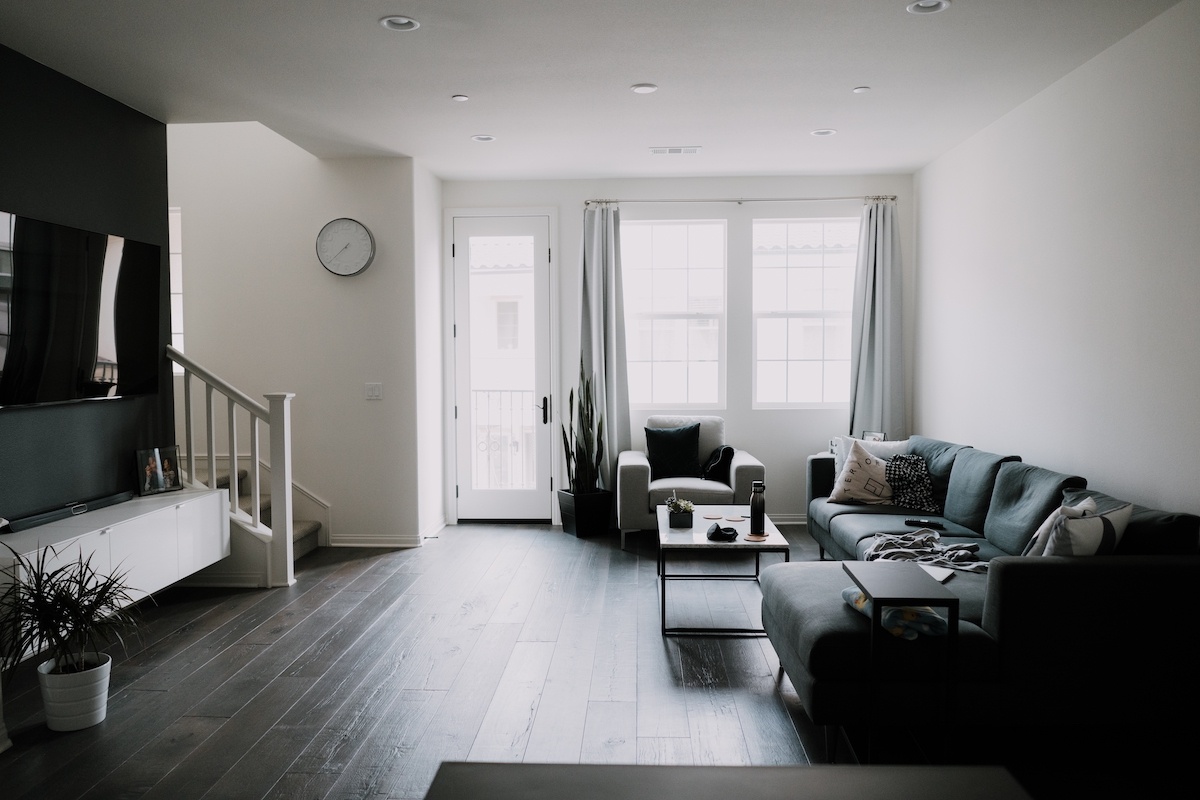
28 Jul Tips to improve indoor air quality in your home
When it comes to air pollution, many people think of their homes as a sanctuary from pollutants that could impact the air quality they breathe. It may seem logical that once you close the door and inside your home, you are away from pollutants such as vehicle fumes, pollen, and smoke, especially if you live in the city or an industrial area.
But, unfortunately, most people are unaware that the quality of indoor air could be even worse than the air outside the home.
The effects of poor indoor quality and just how damaging that it can be is a subject that is not often discussed. But, in some cases, indoor air pollution within a residential property can be up to five times higher than outside. This may sound surprising, but being aware of the air quality inside your home is just as important, if not more crucial, than outside air quality. As your home is the place you eat, sleep, and relax, it is likely to be where you spend most of your time.
So, taking steps to ensure you reduce pollutants in your home that negatively impact air quality and doing all you can to improve the air in your home is vital.
Why Indoor Air Quality Matters
Everyone wants their house to be a safe, healthy place to live.
Usually, efforts to keep the home a safe and healthy environment include keeping the house clean and reducing hazards, such as fire risks. But, one vital component of a healthy home is most often overlooked, and that is the indoor air quality. As you cannot see the air in your home, it is understandable that it is often forgotten. However, despite the indoor air in your home not being visible, that does not make it less critical for the health and safety of everyone in your household.
The impact of poor air quality in the home can manifest itself in many ways. Sometimes, indoor pollution can have immediate effects, but often, these can build up over a more extended period. The conditions caused by poor air quality can vary from mild to severe diseases.
Here are some of the symptoms and conditions that may result from low-quality air in the home:
- Allergy-type symptoms such as itchy eyes, runny nose, and sore throat
- Irritated eyes, nose, and throat
- Fatigue
- Dizziness
- Headaches
- Increase in severity and occurrence of asthma symptoms
- Respiratory difficulties
- Legionnaires Disease is caused by exposure to the Legionella bacteria
- Sick building syndrome occurs only when in buildings with poor indoor air quality and dissipates when away from the building
As well as the above medical impacts of low indoor air quality, some researchers believe that indoor air pollution can also impact cognitive performance.
So, there is potentially also a link between the air quality in classrooms and workplaces and concentration and productivity. While this link is still being researched, it is another reason to ensure that the air you breathe indoors is as free of pollutants as possible.
No one wants to think that their home could be making them ill, as it should be a place where you feel safest and most relaxed. Having a home that could potentially harm your health is a worrying thought and something essential to avoid.
How you can help improve air quality in your home
While the impact of poor air quality can be severe, and the thought of the effect it can have on the health of people in your household is a worry, there is some good news. It is possible to improve the air quality within your home and reduce the level of pollutants. Taking a proactive approach to keeping your home healthy and the air of the highest quality is an effective way to ensure your air quality is as high as possible. Here are some of the ways you can help improve the indoor air quality at your property:
Clean your air ducts regularly
Your HVAC is essential to your home’s air quality, so understanding how you can keep it running at its best is crucial. Getting your HVAC’s air ducts cleaned could be beneficial to your indoor air quality. Over time, the air ducts accumulate large amounts of dust, but sometimes there can be more than simply dust in your air ducts. Vermin and mold can also sometimes be found in air ducts, and in this situation, you need to get them cleaned to prevent any impact on your home’s air quality.
Air duct cleaning is not a DIY job and should always be carried out by a professional heating and cooling technician using specialist tools. Trying to clean your air ducts yourself can make the pollutants in your home a more significant problem and release contaminants into your living environment. So, you could make your indoor air quality worse rather than better if you attempt to clean air ducts yourself. This means that to avoid damage to your HVAC system and prevent your air quality from worsening, it is vital to call in the experts.
Keep your home mold-free
Keeping your home well-ventilated while cooking or using the shower is essential to prevent mold from forming in your home. Mold spores negatively affect your home’s indoor air quality and are especially damaging if you or someone in your household has a sensitivity to mold spores. Taking steps to prevent mold from forming in the first place is vital, but if mold does develop in your home, taking steps to have it properly cleaned is essential.
Change your home air filter
Changing your HVAC’s home air filters is vital to keeping the air quality in your home of a high standard. Your filter collects the pollutants from your home and traps dust, dirt, pollen, and other allergens. Over time, your home air filter becomes clogged up with this debris and makes it harder for it to work effectively. When this happens, you could find that the dust, pollen, and other allergens are released back into your home. As well as being unable to filter your air effectively, a clogged-up filter also means that your filter is not working efficiently and could increase your energy bills.
It is usually recommended that home air filters are changed every 90 days. However, changing your air filter more often than this can be beneficial for many households. If you have pets, you may want to change your home air filter more regularly so that it is not impaired by your pet’s shedding and does not become clogged with dander or fur. If you or a family member has asthma or is prone to allergies, it is also a good idea to replace your home air filter more regularly to ensure it removes as many potential allergies from the air as possible.
Take caution with chemicals
The use of chemicals in the home can cause an immediate deterioration in air quality. Many everyday products can lower the air quality in your home, so taking care when using these is essential. Products containing volatile organic compounds (VOCs) can be especially detrimental to your home’s air quality. These compounds can be found in products ranging from cleaning products to paint, so it is crucial to be aware of potential risks when using these. Keeping the room well-ventilated and, if possible, using these products outside could be the safest option. Following the instructions on the packaging is also vital to minimize the risk of using these products and their potential impact on your indoor air quality.
Keep up with HVAC maintenance
Choosing a qualified, experienced heating and cooling company to look after your HVAC is essential to keep it working to its full potential. With regular maintenance, your HVAC system should perform at its best and will ensure your home enjoys clean air. Scheduling regular HVAC maintenance is essential to keep your HVAC working effectively and efficiently and should mean that any potential issues with your HVAC are detected before they begin impacting your indoor air quality.
Contact TMC to improve the air quality in your home
As you can see, there are a few factors at play when it comes to keeping your indoor air quality at a peak level.
Indoor air quality is crucial to your home and can impact the health of everyone in your household, so it is much too essential to leave to chance.
Your HVAC plays a significant role in the air quality in your home, so it needs to be running at its best.
At TMC, we have the skills and experience necessary to ensure your HVAC is always running at its very best to keep your indoor air quality high and your family breathing in clean air. Whether you need an HVAC repair, a maintenance service, or a replacement HVAC system, we have the necessary experience and knowledge to complete the job to the highest standard. Contact us today and find out how we can help you by calling (615) 255-6677.

